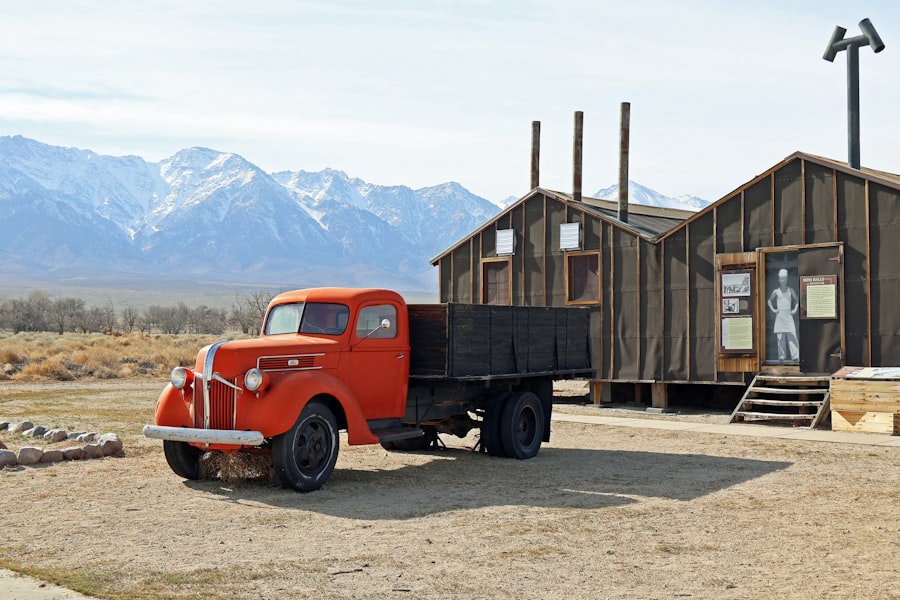Mobile homes with land offer a unique blend of affordability, flexibility, and the opportunity for homeownership that is often unattainable in traditional real estate markets. One of the most significant advantages is the cost-effectiveness of purchasing a mobile home compared to a conventional house. The initial investment is typically lower, allowing buyers to allocate funds toward land acquisition, which can appreciate over time.
This combination can lead to a more stable financial future, especially for first-time homebuyers or those looking to downsize. Moreover, owning land alongside a mobile home provides a sense of permanence and control that renting or living in a mobile home park does not. Homeowners can customize their property, create gardens, or even build additional structures, such as workshops or storage sheds.
This autonomy fosters a deeper connection to the property and enhances the overall living experience. Additionally, having land can provide privacy and space for outdoor activities, making it an appealing option for families or individuals who value their personal space.
Key Takeaways
- Mobile homes with land offer unique benefits such as affordability and ownership of property.
- Choosing the right location is crucial for convenience, lifestyle, and future value.
- Establishing a clear budget helps manage costs and financing options effectively.
- Understanding different mobile home types ensures you select one that fits your needs.
- Navigating legal requirements and working with real estate agents can simplify the purchasing process.
Finding the Right Location for Your Mobile Home
Choosing the right location for your mobile home is crucial, as it can significantly impact your quality of life and property value. Factors such as proximity to schools, healthcare facilities, shopping centers, and recreational areas should be considered. For families, being near quality schools can be a top priority, while retirees may prioritize access to healthcare services and community centers.
Researching local amenities and understanding the demographics of the area can help you make an informed decision. Another essential aspect of location is the zoning regulations that govern mobile homes in different regions. Some areas may have restrictions on where mobile homes can be placed, while others may offer more flexibility.
It’s vital to investigate local zoning laws and ensure that the land you are considering is suitable for a mobile home. Additionally, consider the environmental factors such as flood zones, soil quality, and access to utilities like water and electricity. These elements can affect not only your living experience but also the long-term viability of your investment.
Determining Your Budget for a Mobile Home with Land

Establishing a budget is a critical step in the process of purchasing a mobile home with land. Begin by assessing your financial situation, including your income, savings, and any existing debts. This evaluation will help you determine how much you can afford to spend on both the mobile home and the land.
It’s essential to account for additional costs beyond the purchase price, such as property taxes, insurance, maintenance, and utilities. When setting your budget, consider the financing options available for mobile homes with land. Traditional mortgages may not always apply to mobile homes, so exploring specialized loans designed for this type of property is crucial.
These loans often have different terms and interest rates compared to conventional mortgages. Additionally, some lenders may require a larger down payment for mobile homes than they would for traditional homes. Understanding these financial nuances will help you create a realistic budget that aligns with your long-term goals.
Exploring the Different Types of Mobile Homes Available
| Type of Mobile Home | Size Range (sq ft) | Typical Number of Bedrooms | Construction Material | Mobility | Average Lifespan (years) | Common Usage |
|---|---|---|---|---|---|---|
| Single-Wide | 400 – 1,300 | 1 – 3 | Steel Frame with Vinyl or Aluminum Siding | High (Easily Transportable) | 30 – 50 | Affordable Housing, Temporary Residences |
| Double-Wide | 900 – 2,300 | 2 – 4 | Steel Frame with Vinyl or Wood Siding | Moderate (Requires Special Transport) | 40 – 60 | Permanent Residences, Family Homes |
| Triple-Wide | 1,500 – 3,000 | 3 – 5 | Steel Frame with Wood or Composite Siding | Low (Complex Transport) | 50 – 70 | Luxury Mobile Homes, Large Families |
| Park Model | 300 – 400 | 1 | Steel Frame with Vinyl Siding | High (Designed for Easy Mobility) | 20 – 40 | Vacation Homes, Seasonal Use |
| Modular Home | 1,000 – 3,000 | 2 – 5 | Wood Frame with Various Siding Options | Low (Transported in Sections) | 50 – 100+ | Permanent Residences, Custom Builds |
Mobile homes come in various styles and sizes, each catering to different needs and preferences. The most common types include single-section homes, double-section homes (also known as double-wides), and triple-section homes. Single-section homes are typically smaller and more affordable, making them ideal for individuals or couples looking for a compact living space.
In contrast, double-section and triple-section homes offer more square footage and often feature multiple bedrooms and bathrooms, making them suitable for families. Beyond size, mobile homes also vary in design and construction quality. Some manufacturers focus on creating energy-efficient models equipped with modern amenities such as high-efficiency appliances and advanced insulation systems.
Others may offer customizable options that allow buyers to select finishes, layouts, and features that suit their tastes. When exploring different types of mobile homes, it’s essential to consider not only your current needs but also your future lifestyle changes that may require more space or different features.
Navigating the Legalities of Purchasing a Mobile Home with Land
The legal aspects of purchasing a mobile home with land can be complex and vary significantly by location. One of the first steps is to ensure that the land is properly zoned for mobile home use. This involves checking local zoning ordinances and understanding any restrictions that may apply to your property.
Additionally, it’s crucial to verify that the land has clear title and is free from liens or encumbrances that could complicate ownership. Another important legal consideration is understanding the difference between owning the mobile home outright versus purchasing it as part of a land-lease arrangement. In some cases, buyers may find themselves in situations where they own the mobile home but lease the land it sits on.
This arrangement can lead to complications regarding property rights and responsibilities. Consulting with a real estate attorney who specializes in mobile home transactions can provide valuable guidance in navigating these legal waters.
Considering the Amenities and Features You Desire in Your Mobile Home

When selecting a mobile home, it’s essential to consider the amenities and features that will enhance your living experience. Modern mobile homes often come equipped with various options that cater to different lifestyles. For instance, if you enjoy cooking or entertaining, look for homes with spacious kitchens featuring modern appliances, ample counter space, and open floor plans that facilitate social interaction.
Additionally, consider energy-efficient features such as double-pane windows, energy-efficient heating and cooling systems, and high-quality insulation. These elements not only contribute to comfort but also help reduce utility costs over time. If outdoor living is important to you, look for homes with decks or porches that extend your living space into the outdoors.
Ultimately, identifying your priorities will help you find a mobile home that meets your needs while providing a comfortable and enjoyable living environment.
Tips for Financing Your Mobile Home with Land Purchase
Financing a mobile home with land can present unique challenges compared to traditional home purchases. One key tip is to shop around for lenders who specialize in mobile home financing. These lenders often have more experience with the specific requirements associated with mobile homes and can offer tailored loan products that meet your needs.
Be prepared to provide documentation regarding your income, credit history, and any other financial information required by lenders. Another important aspect of financing is understanding the terms of your loan. Mobile home loans may come with higher interest rates or shorter repayment periods than traditional mortgages.
It’s crucial to read the fine print and ask questions about any fees or penalties associated with early repayment or refinancing options. Additionally, consider getting pre-approved for a loan before you start shopping for a mobile home; this will give you a clearer picture of your budget and strengthen your position when negotiating with sellers.
Working with a Real Estate Agent to Find Your Perfect Mobile Home with Land
Engaging a real estate agent who specializes in mobile homes can significantly streamline your search process. These professionals possess valuable knowledge about local markets and can help you identify properties that meet your criteria while staying within your budget. They can also provide insights into neighborhoods that may not be immediately apparent through online searches.
A skilled real estate agent will assist you in navigating negotiations and paperwork associated with purchasing a mobile home with land. They can help you understand market trends, assess property values, and even recommend financing options tailored to your situation. Furthermore, their expertise can be invaluable when it comes to understanding local zoning laws and regulations that may affect your purchase decision.
By leveraging their experience and resources, you can make informed choices that align with your goals for homeownership.



